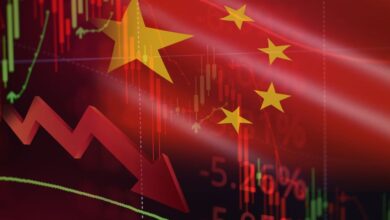Navigating The Waves Of Innovation And Competition In China’s E-Commerce Sector

$9988.HK
Alibaba Group Holding Limited (HKG: 9988) continues to be a dominant force in the global e-commerce and technology sector. Founded in 1999 by Jack Ma, Alibaba has expanded beyond e-commerce into cloud computing, digital media, and entertainment industries. The company’s innovative approach has positioned it as a leader in the Chinese market, where it competes with other tech giants like Tencent and Baidu. Alibaba’s strategic investments in AI and its expansive logistics network have further solidified its market position, making it a key player in the ongoing digital transformation in Asia and beyond.
In the dynamic realm of e-commerce, Chinese giants are continually adapting and innovating to maintain their competitive edge in a fiercely contested market. Recent developments have highlighted significant strategic moves by prominent players such as Alibaba Group Holding and PDD Holdings’ Pinduoduo, underscoring the intense rivalry and rapid evolution of the industry. Pinduoduo recently unveiled an advanced “automated price-tracking system” aimed at giving its merchants a competitive advantage during the bustling 618 shopping festival. This system allows for real-time price adjustments in response to competitors’ pricing strategies, ensuring that Pinduoduo’s offerings remain attractive to price-sensitive consumers.
Simultaneously, Alibaba Group Holding is not standing by idly. The corporation has been proactive in enhancing its technological capabilities and promotional strategies. For instance, Alibaba’s Tmall platform has upgraded its price guarantee feature, which now allows consumers to receive refunds on price differences up to early July, providing a safety net that enhances consumer trust and loyalty. Moreover, Alibaba’s international arm, AliExpress, has been named the exclusive global e-commerce partner for UEFA EURO 2024, a significant step in strengthening its global presence. This partnership is expected to attract a substantial number of international shoppers and sports enthusiasts, bolstering the platform’s user engagement and market reach.
The competitive landscape is further complicated by the aggressive pricing strategies employed by other tech giants in the region. Companies like ByteDance and Baidu have entered the fray, significantly lowering the cost of their large language model (LLM) services, thereby intensifying the price war. These strategic price reductions are indicative of a broader trend where companies are leveraging cost-efficiency to capture a larger market share, despite the potential long-term impacts on revenue. This cutthroat competition extends beyond pricing strategies to technological advancements and leadership changes. Alibaba, for example, has seen a significant reshuffling of its executive team, promoting younger leaders to spearhead its core e-commerce operations.
This generational shift in leadership is poised to inject new ideas and strategies into the company, potentially leading to enhanced innovation and adaptability. The Chinese e-commerce landscape is characterized by rapid technological innovations, strategic partnerships and intense competitive dynamics. Companies like Alibaba and Pinduoduo are continuously seeking new ways to enhance their market position and attract consumers through advanced technologies and strategic marketing initiatives. These firms navigate the challenges and opportunities presented by the evolving market, their actions will likely have significant implications for the future trajectory of the global e-commerce industry. The ongoing developments in this sector highlight the critical importance of innovation and strategic foresight in sustaining growth and competitiveness in an increasingly digitized global market.
**DISCLAIMER: THIS CONTENT IS FOR INFORMATIONAL PURPOSES ONLY AND SHOULD NOT BE INTERPRETED AS INVESTMENT ADVICE. INVESTING INVOLVES RISK, INCLUDING THE POTENTIAL LOSS OF PRINCIPAL. READERS ARE ENCOURAGED TO CONDUCT THEIR OWN RESEARCH AND CONSULT WITH A QUALIFIED FINANCIAL ADVISOR BEFORE MAKING ANY INVESTMENT DECISIONS.**



